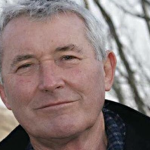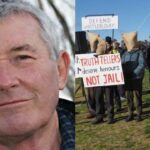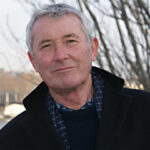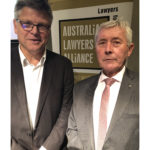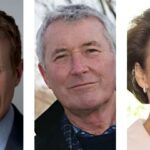“The Time Has Come for Full Disclosure”: Former Senator Rex Patrick on the Timor-Leste Files
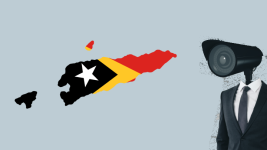
Former Senator Rex Patrick was standing outside Room 5.3 of the Administrative Appeals Tribunal on 28 July, while proceedings were taking place inside, as, despite his having initiated the case being heard, he wasn’t permitted to enter due to the secrecy measures applied.
As Patrick put it on the day, the hearing marked the first such secret proceedings under the Albanese government.
The National Archives of Australia releases cabinet documents once they reach 20 years old. And on 1 January last year, documentation entitled Timor Gap Negotiations was cited as having reached the two-decade mark, however it wasn’t released.
So, Patrick filed an appeal of that decision to the AAT last August, and following that, the government promptly handed over two-thirds of the Timor-Leste files.
But the ex-senator is continuing his push for the entire 2000 files, and now similar documentation from the year 2001, as he wants to expose the strategies taken by our government in Timor Gap oil and gas negotiations in the lead up to its 2004 bugging of the Timor-Leste cabinet offices.
Settling old scores
Attorney general Mark Dreyfus dropped the prosecution against ACT barrister Bernard Collaery on 7 July. The highly contested case saw the lawyer and his client, Witness K, being pursued for their part in having exposed our government having spied on Timor-Leste in 2004.
Witness K was the ASIS agent in charge of the 2004 Dili bugging operation. In 2008, he went to the Inspector General of Intelligence and Security about a workplace dispute, and was told to consult Collaery, an intelligence-approved lawyer, and this led to discussion of the spying incident.
Collaery was at the Court of Arbitration at the Hague in 2013 about to represent Timor-Leste against Australia over the bugging operation revelations, with Witness K set to testify, when ASIO and the AFP raided both men’s Canberra premises, which put a halt to the proceedings.
Yet, it wasn’t until mid-2018 that then AG Christian Porter greenlighted the prosecution of the pair. And in doing so, the chief lawmaker went on to exercise a never-before-used national security secrecy measure to hide the vast majority of the proceedings involved in both cases.
Political prosecutions
With Collaery’s case dropped, two more political prosecutions continue, that of Richard Boyle and David McBride. And secrecy orders continue to be applied: a situation that is exemplified by the secret trialling of former intelligence agent Witness J, or Alan Johns, which almost went unnoticed.
As for his post-parliamentary work, Patrick has launched Transparency Warrior, which is a service that assists the general public in accessing the details of what government is up to via freedom of information laws.
Sydney Criminal Lawyers spoke to Rex Patrick about his quest to see the Timor-Leste cabinet files released, the issues he’s having to deal with as a result of his AAT appeal being held behind closed doors, and the fact that Boyle and McBride are to be prosecuted under laws acknowledged a failure.
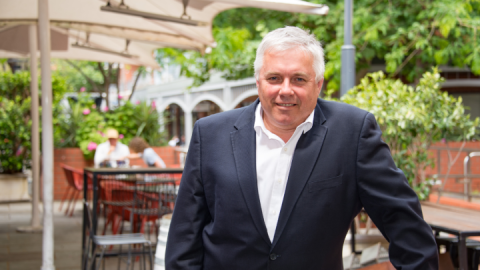
You put in a request to access the 2000 Timor Gap Negotiations cabinet files but were denied that access. Although after filing for a review with the AAT, you were provided with two-thirds of them. And now you’re appealing for the remainder to be handed over.
Mr Patrick, why are you so determined to see all of the documentation?
I’m aware of the events that took place in Timor in 2004. Indeed, I’m aware of the way in which Australia treated Timor-Leste going back as far as World War II. We haven’t treated them well. We have not treated them as a neighbour should.
The controversy in relation to Australia and Timor-Leste, particularly with the boundary, still sits. So, the time has come for full disclosure around the events of 2000 through to 2018 involving the sea boundaries.
Everyone knows that the spying took place. We know from the Timor-Leste memorial in the ICJ, which is related to proceedings that were initiated after Australia raided the legal offices of Timor-Leste, that being Bernard Collaery’s office.
The proceedings that were being conducted in the Court of Arbitration, relating to the sea boundary that had been agreed between the two countries, involved an affidavit from Witness K that described the spying operation.
We know charges that were laid against Witness K were also to the affidavit, which was found in his possession. The dots are joined. There can be no doubt that the spying took place.
The government adopts a neither confirm nor deny position on these matters. But it’s obvious to all Australians, all Timorese and the international community that the operation occurred.
It really is embarrassing for the government to take the approach it has in terms of maintaining the confirm or deny policy. That policy is not rigid.
When Snowden revealed that we were spying on president Yudhoyono, Tony Abbott said that ought to have been expected. Sadly, we’ve got Dr Yang in China, where minister Payne has made it clear that he was not involved in any intelligence operation.
So, it’s not without precedence that Australia be forthright in its intelligence activities and particularly, in circumstances where it’s obvious it’s occurred.
It’s obvious through the evidence in the public domain, obvious due to the conduct of both countries, whereby Timor had the confidence to take Australia to The Hague, and it’s obvious in Australia ultimately backing down.
Then there’s the fact that Bernard Collaery and Witness K were prosecuted for revealing the operation. We don’t prosecute people in Australia for revealing fictitious operations.
Whilst we adopt this secrecy position, it is actually harmful to the relationship between Timor-Leste and Australia.
In my matter, Xanana Gusmão, one of the most influential people in Timor-Leste, made clear that secrecy cannot be part of any good neighbourly relations.
In the Collaery case, the new president of Timor-Leste José Ramos-Horta went on evidence to say, again, that the secrecy is not helpful and that matters being dealt with, the spying on the Timor-Leste sea boundary negotiating team, ought to be acknowledged such that people can move on.
It’s abhorrent conduct by Australia. We sought to defraud the newest country in the world, an impoverished country, of their resources.
It just needs to come out. There is no national interest in keeping those things secret.
You’ve continued to push for the rest of the 2000 documentation. In a public hearing in May, you argued that the two-decade-old documents couldn’t possibly harm our nation’s standing or that of the government.
However, the Albanese government put forth counterarguments to your position at the AAT last Thursday in closed proceedings that you couldn’t attend.
What are your thoughts on these secrecy measures, which are increasingly being applied to legal proceedings in this country?
There are arguments that have been made, and I don’t know what those arguments are. Therefore, I can’t rebut them. I don’t know what the Commonwealth witnesses said. I was unable to cross-examine them.
So, I am left in the dark as to their arguments. The only argument that has been presented in an open tribunal is that the release of these documents would be harmful to international relations. That’s the only argument that I’ve been made aware of.
In circumstances where you are trying to get access to documents that are being withheld, you already have one hand tied behind your back, because you don’t know their content.
When you don’t know what the argument is, then you’ve got both hands tied behind your back. It’s hardly a fair process. There could have been arrangements put in place to protect the confidentiality of the documents.
I, as a litigant, have formally had high security clearances. At the time the proceedings were initiated, and the secrecy certificate was invoked, I was a senator in the Australian parliament, who regularly received private briefings, which were never breached.
Of course, any confidentiality orders by the tribunal must be adhered to, and there is a way to enforce that if someone were to breach them, particularly in circumstances where I’m no longer a senator.
I can no longer walk into parliament and just rattle off what might have been said in a confidential environment. Not that I would have.
Sadly, we are seeing more secret trials. We have just seen the situation with Alan Johns, a pseudonym, with a report showing that the ACT court wasn’t well versed and fell short in its own duty to protect open justice.
In terms of the rule of law and making sure that the justice system operates properly, open justice is key. In fact, it was found that the court made decisions to close the court in circumstances where evidence hadn’t even been presented.
The court failed to provide reasons for closing the court. And whilst he directed remedies at the executive that might have involved a contradictor or an overt requirement in the legislation for certain things to occur, it’s clear that the court itself failed.
We’ve got lots of secrecy involved in proceedings that we know haven’t stood the test of senior judicial review, and it’s concerning in circumstances where, for the last decade, lots of power was placed in the hands of government.
That’s the power to do things in secret and, in my view, there are not enough checks and balances. We don’t, for example, have parliamentary oversight of intelligence services operations.
So, in the context of powers, secrecy is increasing, and, on the flipside, the checks and balances have not improved, and it appears they’re getting worse, noting the number of secret trials that we are seeing.
You’ve been a vocal opponent of the political prosecutions launched under former attorney general Christian Porter. Those of Bernard Collaery and Witness K over having exposed the Timor-Leste bugging were also subjected to heavy secrecy provisions.
Incoming Labor AG Mark Dreyfus has just dropped the prosecution against Collaery. What are your thoughts on this development?
I welcome it. Bernard Collaery and Witness K were alleged to have engaged in a conspiracy to disclose what was likely an improperly authorised operation but in any circumstances, an abhorrent operation.
Australia shook hands with the Timorese, told them that we would negotiate in good faith over the sea boundary and then we spied on their negotiating team. That’s an inappropriate use of our intelligence services.
I have no issue with our intelligence services gathering information related to national security, and even in the national interest. But in circumstances where you agree to negotiate in good faith, that’s not a place where it’s proper to use our intelligence services.
I might point out that at the time when they were being used, Jemaah Islamiyah was heavily engaged in operations that were directed at Australia.
At that time, we saw the bombing of the Australian Embassy in Jakarta. I have no doubt in my mind that some of the resources that could have been used in dealing with that serious issue were diverted to Timor-Leste to carry out this inappropriate operation.
I’m glad that the new attorney general has ceased the proceedings, but I’m not sure that he has done so purely through a moral lens.
The strong views of Xanana Gusmão and now president José Ramos-Horta on the prosecution needing to stop are clear from documents tabled in Timor-Leste parliament earlier this year, that being a vote of confidence in Bernard Collaery.
Australia has just had a shakeup in the conduct of international relations in the South Pacific. I’m referring to changes in the Solomon Islands.
Also, the new Albanese government has properly, and in a welcome fashion, reached out to all the players in the South Pacific, including Timor-Leste, and I have no doubt that the Collaery matter would have been raised by their leadership.
I suspect that is the main reason why the section 71 power under the Judiciary Act has occurred. It has more to do with international relations and national security in terms of preserving our relationship in Timor-Leste over that of perhaps the Chinese government.
Collaery was fighting the secrecy measures applied to his trial. In October last year, he was successful in having the ACT appeals court rule that six identified matters should be made public. The Morrison government then pushed for the transcript of these proceedings to be kept secret.
However, Dreyfus is now pushing for the transcript to be heavily redacted if released. How do you consider this renewed push to bury the truth?
Again, Collaery faced the same issue that I face in my tribunal proceedings. That is a government that simply does not want to put the truth on the table.
Even though the Collaery prosecution has ceased, there is still an issue before the High Court. The Chief Justice of the ACT Supreme Court has made a ruling in Collaery’s matter that the Commonwealth is seeking to appeal her discretion in respect of the judgement.
In my understanding, that issue is ongoing, because if the Commonwealth was to drop the proceedings in relation to that, then the judgement would be published.
I don’t know how that works. You’ve got a man who was fighting prosecution, but he’s no longer doing that. So, it might leave the government with a matter before the High Court which has no party opposing.
The court may have to appoint a contradictor to argue the High Court case. That all still needs to be resolved. But the government can’t be a judge in its own cause. That’s properly the role of the court.
When the court decides that something is not harmful to national security, where something is not classified as the High Court has done in matters like the defence papers case, then the government needs to accept that.
Two of the prominent political prosecutions remain before the courts, that of Richard Boyle and David McBride.
In blowing the whistle, both men followed the public disclosure laws, which the attorney general originally drafted and has admitted have failed and are now slated for an overhaul.
What are your thoughts on continuing to pursue these two men under laws that have been acknowledged as ineffective in protecting individuals in their position?
It simply presents a dichotomy for the attorney general. He knows that the protection laws are not effective, and yet he’s allowing the prosecution of these men to continue.
I’m much more familiar with the Richard Boyle case, in terms of managing my time as a senator. Obviously, I have to give my priority to a citizen of South Australia that being Richard Boyle.
I’ve seen all of the details in his public interest disclosure through Senate processes. I was involved in the inquiry that examined the inhouse investigation that occurred when he did make a PID, and the Senate went on to find that the investigation into it was superficial.
We had a guy that blew the whistle on conduct that was shown to have been occurring, the abuse of garnishee powers by the Australian Taxation Office, and the investigation into his PID was superficial.
I would have used other words, but superficial was the best word that we could get bipartisan agreement on.
Were it not for that superficial investigation, Richard Boyle would not have gone on to do things that have resulted in the allegations that have been made against him.
Richard blew the whistle formally. He then departed from what was the formal whistleblowing process, that the appeal of a PID investigation that has been closed should properly go to the Ombudsman.
But Richard did something that was sensible. He rebadged his disclosure into the form of a complaint with appropriate redactions and submitted it to the Inspector General of Taxation, who is the specialist in terms of oversight of the tax office.
So, one might say Richard is forgiven for going down that pathway. And it really was in many respects the best path to go down.
But again, he was ignored, and he then went to the media. His whistleblowing caused change, and everyone will benefit from that change, except for Richard Boyle who is facing gaol.
It’s just so wrong, and it has to stop.
In relation to David McBride, he blew the whistle properly on the conduct of Australian Special Forces in Afghanistan.
We have now had the Brereton review that absolutely vindicates what David McBride has said, and yet again, he faces prosecution.
The irony is this abhorrent conduct occurred in Afghanistan, unlawful killings, and the only person being prosecuted thus far is the person who blew the whistle.
And lastly, Mr Patrick, the campaign to end the political prosecutions is ongoing. You’re continuing to push for the Timor negotiating documents from 2000 to be released, and there are suggestions that spying on Timor-Leste may have begun way before the 2004 incident.
Ultimately, what sort of outcomes do you want to see here? And how do you plan to go about achieving them?
I will press on with the proceedings. All I can do is hope that the AAT deputy president Mr Britten-Jones looks at the entirety of the circumstances and reaches the conclusion that I have reached, which is a negotiating strategy from 20 years ago, seven governments ago, relating to agreements that are no longer in force, can’t possibly cause damage.
Indeed, if there is damage that could be caused that should not be looked at in isolation but with all of the things that we did to Timor-Leste.
The support for the annexation of Timor-Leste by Indonesia. The spying that took place in 2004. The removal of our jurisdiction from international maritime law in the face of negotiations. And the raiding of the legal offices of Timor-Leste by the Australian government
All of those things have broken the plate, and no amount of additional disclosure of documents of that age could possibly do anything to break the plate further.
The general signals that have come from Timor-Leste and the international community suggest that its harmful to continue the secrecy. The continued secrecy is the thing that causes harm.
I will continue fighting this matter. I have another matter with the AAT, which we haven’t got to the point of having a directions hearing about yet, which goes to similar documents released the following year.
I’m going to continue this. I won’t stop. I want to see a situation where we are open and honest about our poor conduct.
That’s what Australia wants, and that’s why I will continue to fight for it.


